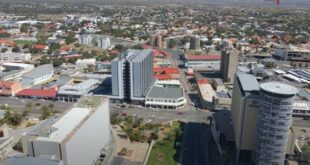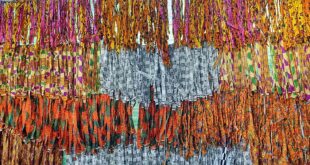The Democratic Republic of Congo marked its 60th independence anniversary on 30 June. Belgium’s King Philipe chose the occasion to apologise for his country’s horrendous atrocities against the Congolese people during its colonial occupation of the vast African country. How genuine is the apology? Femi Awoniyi takes a look at the situation of the troubled African country against the background of its tragic history of brutal foreign exploitation
No African country, arguably, has been more traumatised by colonialism than the Democratic Republic of Congo, known as Zaire from 1971 to 1997 under the dictatorship of Mobutu Sese Seko.
The vast land was subjected to the most brutal form of exploitation first by the Belgian King Leopold II, whose personal property the Congo was, and subsequently by the Belgian state that came to rule it as a colony afterwards.
During Leopold’s ‘personal ownership’ of their country, between 1885 and 1908, the Congolese were subjected to horrendous suffering as the king exploited the territory for its natural riches, namely rubber and ivory.
In his attempt to bolster the status of his small kingdom among European imperial powers, Leopold’s soldiers and their local helpers in the Congo employed the most inhuman methods to maximise profit to enrich Belgium.

Hundreds of thousands of Congolese were conscripted into labour slavery, forced to collect ivory, by killing elephants, and harvest rubber and made, therefore, to abandon their traditional agriculture, leading to widespread starvation in a land blessed with so much arable land. Those who resisted or were unable to meet the impossible work quotas imposed on them, faced punishments including mutilation or execution.
By the time international outcry in the West forced Leopold to relinquish his ‘personal territory’ to the Belgian state, more than 10 million Congolese had perished as a result of violent death, starvation and disease.
Ironically, the territory under King Leopold’s brutal rule was called the Congo Free State. In fact, it was the world’s only private colony, and Leopold referred to himself as its “proprietor”.
And Leopold used the wealth he extracted at the cost of Congolese lives and limbs to build Belgium. He’s credited with the construction of monumental infrastructures during his reign that he’s remembered fondly among his people as the ‘Builder King’.
As DRC marked the 60th anniversary of its independence and in the wake of a new consciousness of colonial crimes committed against Africans, Belgium’s King Philippe, a direct descendant of Leopold II, has expressed his “deepest regrets” for the harm done during Belgian colonial rule in DR Congo.
“I want to express my deepest regret for these past injuries, the pain of which is regularly revived by the discrimination that is still all too present in our societies,” Philippe said in a letter to President Felix Tshisekedi.

Philipe’s apology came as statues of Leopold were being defaced or removed in Belgium after global anti-racism protests sparked by the police killing of George Floyd swept across Europe.
That the king choose this time to apologise shows that it was not a sincere apology but an attempt to bolster the moral standing of his royal throne in the face of criticisms of his forefather’s bloody crimes in the Congo.
Even the king’s brother, Prince Laurent, recently publicly defended Leopold II, saying he never set foot in the Congo and the crimes committed there were perpetrated by those he delegated powers to.
Moreover, the crimes of Belgium did not stop with Leopold’s atrocities or during the period the Congo was ruled and occupied by the Belgian state but continue until today.
The Belgians have consistently intervened in the Congo to enable it continue to loot its resources unfettered while preventing the Congolese from charting their own independent path of political and economic development.
The Belgians have therefore ensured that the Congo has known no peace even after its supposed independence.
Independent Congo’s first leader Patrice Lumumba was overthrown on 5 September 1960, barely three months after taking office and subsequently murdered on 17 January 1961, throwing the country into civil war. Belgium has formally apologised for its role in the assassination.
Lumumba was killed because he wanted self-determination for the Congolese and a development programme that would deploy its vast riches for the improvement of the lives of his people. Belgium and its allies, such as the US, did not want that, which was why they eliminated him.
Lumumba, one of the youngest post-colonial African leaders who became the Prime Minister of Congo at 35, was an advocate of true African independence and unity. His subsequent overthrow and assassination robbed the people of their true leader.
Belgium sponsored Mobutu sese Seko’s takeover of power and backed him during his infamous rule from 1965 to 1997 to guarantee their continued access to the riches of the Congo.

The manipulation of Congolese politics by Belgians and their Western allies, such as France and the US, is the main reason why a land like the DRC with all its riches is still a nightmare for the majority of its people.
Congo is wracked by internal conflicts, mostly sponsored by outside forces to steal its mineral resources. As killing, mutilation, sexual violence and looting take place almost on daily basis in the country, the DRC has one of the highest rates of internal displacement in the world.
According to the UNHCR, a total of 5 million Congolese are presently living as refugees in their own country. More than 8 million people have died in the Congo since 1997 as a result of the conflicts in the country.
No wonder the country’s colonial past is not taught in Belgian schools since its nefarious activities in the Congo are still ongoing.
And Leopold continued to be honoured in Belgium long after his death in 1909. One of the numerous statues erected in his honour across the country was installed as recently as in 1997.
Belgium’s crimes in the Congo are therefore far from being ancient history, as the looting of its mineral resources and killing of its people continue.
King Philipe’s apology is only a self-serving, face-saving diplomatic ploy and not a sincere regret over his country’s crimes in the Congo.
READ ALSO How King Leopold’s horrific plunder of Congo laid basis for its contemporary troubles
 THE AFRICAN COURIER. Reporting Africa and its Diaspora! The African Courier is an international magazine published in Germany to report on Africa and the Diaspora African experience. The first issue of the bimonthly magazine appeared on the newsstands on 15 February 1998. The African Courier is a communication forum for European-African political, economic and cultural exchanges, and a voice for Africa in Europe.
THE AFRICAN COURIER. Reporting Africa and its Diaspora! The African Courier is an international magazine published in Germany to report on Africa and the Diaspora African experience. The first issue of the bimonthly magazine appeared on the newsstands on 15 February 1998. The African Courier is a communication forum for European-African political, economic and cultural exchanges, and a voice for Africa in Europe.

































